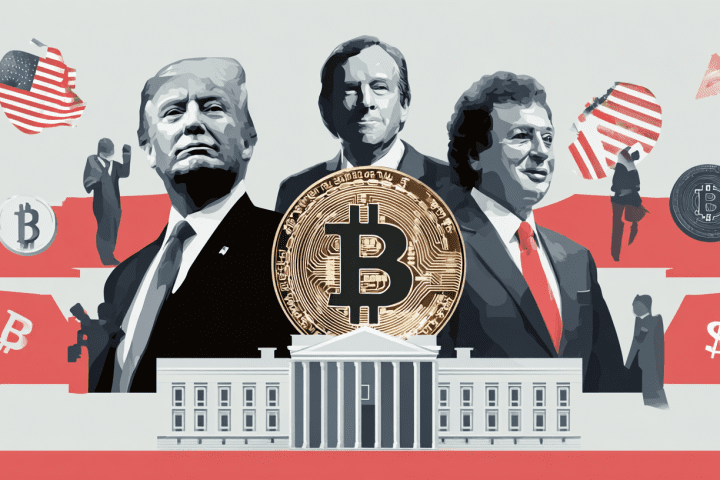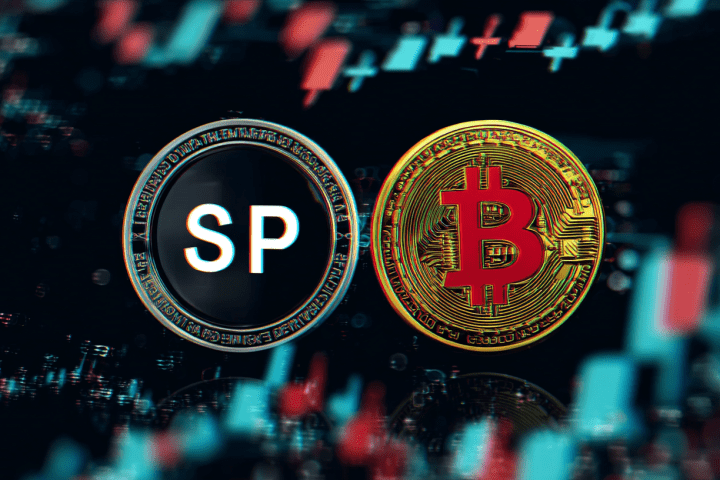The intersection of cryptocurrency and international sanctions has become one of the most controversial and consequential issues in global finance and geopolitics. As governments impose economic restrictions to enforce foreign policy objectives, sanctioned entities increasingly turn to digital assets as mechanisms for circumventing traditional financial system controls. Understanding how cryptocurrency enables sanctions evasion, the challenges this creates for regulators, and the implications for global security and financial integrity is essential for anyone engaged with digital assets or international policy.
The Role of Sanctions in International Relations
Economic sanctions represent powerful foreign policy tools that governments use to pressure other nations, organizations, or individuals without resorting to military force. These restrictions typically prohibit financial transactions, freeze assets, and limit access to international banking systems for targeted entities.
Traditional sanctions rely on centralized financial infrastructure where banks, payment processors, and correspondent banking networks can identify and block transactions involving sanctioned parties. This centralized control point enables enforcement through regulatory compliance requirements and threat of severe penalties for violations.
However, cryptocurrency’s decentralized, pseudonymous nature fundamentally challenges this enforcement model. Blockchain transactions can occur peer-to-peer without intermediaries who might implement sanctions screening, creating potential pathways around traditional financial system restrictions.
How Cryptocurrency Enables Sanctions Circumvention
Various characteristics of cryptocurrency technology and markets create opportunities for sanctioned entities to access financial services and conduct transactions despite international restrictions. Understanding these mechanisms illuminates both the challenge and the complexity of the sanctions-crypto intersection.
Pseudonymity and Identity Obfuscation
Cryptocurrency addresses don’t inherently reveal user identities, providing initial anonymity that complicates sanctions enforcement. While blockchain transactions are publicly recorded, connecting specific addresses to sanctioned entities requires sophisticated analysis and often isn’t possible without additional information.
Sanctioned actors can create unlimited cryptocurrency addresses without identity verification, enabling them to receive and send funds without immediate detection. This pseudonymity provides temporary operational capability even if authorities eventually identify and blacklist specific addresses through forensic investigation.
Decentralized Exchange Platforms
Decentralized exchanges (DEXs) operate through smart contracts without centralized operators who can implement know-your-customer requirements or sanctions screening. These platforms enable cryptocurrency trading without identity verification, allowing sanctioned entities to exchange assets freely.
Unlike centralized exchanges that must comply with regulations and block sanctioned addresses, DEXs lack mechanisms for enforcing restrictions. While some DEX interfaces implement voluntary restrictions, the underlying smart contracts remain accessible through alternative interfaces or direct blockchain interaction.
Key DEX characteristics enabling sanctions evasion include:
- No identity verification allowing anyone to trade regardless of sanctions status or jurisdictional restrictions
- Smart contract automation executing trades without human intermediaries who might recognize and block sanctioned parties
- Censorship resistance preventing authorities from shutting down decentralized protocols operating across distributed networks
- Cross-chain capabilities enabling asset transfers between different blockchains to obscure transaction trails
- Liquidity provision through automated market makers that function without requiring counterparty due diligence
Privacy Coins and Mixing Services
Privacy-focused cryptocurrencies like Monero, Zcash, and Dash employ advanced cryptographic techniques that obscure transaction details including sender addresses, recipient addresses, and transfer amounts. These features make tracking funds flow virtually impossible, creating substantial sanctions enforcement challenges.
Cryptocurrency mixing services and tumblers further complicate transaction tracing by pooling funds from multiple users and redistributing them, breaking the connection between sending and receiving addresses. While these services claim legitimate privacy purposes, they’re frequently used for illicit activities including sanctions evasion.
Real-World Examples and Case Studies
Understanding theoretical sanctions circumvention mechanisms matters less than examining actual instances where sanctioned entities have leveraged cryptocurrency. These real-world examples demonstrate both the scope of the problem and enforcement challenges.
Nation-State Actors
Multiple sanctioned nations have explored or implemented cryptocurrency strategies to mitigate sanctions impact. These state-level efforts represent the most significant sanctions evasion concerns due to the resources, sophistication, and geopolitical implications involved.
North Korea has allegedly conducted extensive cryptocurrency theft through hacking operations targeting exchanges and DeFi protocols, with stolen funds used to finance weapons programs and evade sanctions restricting access to international financial systems. Blockchain analysis firms have traced hundreds of millions of dollars in stolen cryptocurrency to North Korean state actors.
Iran has similarly explored cryptocurrency mining and transactions as sanctions workarounds, with government officials discussing digital assets as tools for international trade despite banking restrictions. Iranian actors have reportedly used cryptocurrency to purchase goods and services from international suppliers unwilling to accept traditional payment methods due to sanctions compliance concerns.
Russia’s invasion of Ukraine prompted unprecedented Western sanctions, raising concerns about cryptocurrency enabling sanctions evasion at massive scale. While evidence suggests actual Russian use of cryptocurrency for large-scale sanctions evasion remains limited, the potential concern has driven intensified regulatory scrutiny.
Criminal Organizations and Terrorist Financing
Beyond nation-states, criminal organizations and terrorist groups have utilized cryptocurrency for fundraising and financial operations despite sanctions and counter-terrorism financing restrictions. These non-state actors often demonstrate sophisticated cryptocurrency knowledge and operational security.
Various designated terrorist organizations have solicited cryptocurrency donations through social media and propaganda channels, recognizing digital assets’ advantages over traditional financial systems where accounts would be immediately frozen. Blockchain analysis has identified numerous terrorism financing networks operating through cryptocurrency.
Regulatory Responses and Enforcement Challenges
Governments and international organizations have developed various strategies attempting to prevent sanctions circumvention through cryptocurrency. However, enforcement faces significant technical, legal, and practical challenges that limit effectiveness.
Compliance Requirements for Exchanges
Regulators increasingly impose stringent compliance requirements on centralized cryptocurrency exchanges including sanctions screening obligations, transaction monitoring systems, and reporting requirements for suspicious activities. Major exchanges now implement sophisticated compliance programs comparable to traditional financial institutions.
These requirements have created two-tiered cryptocurrency markets: compliant exchanges implementing sanctions screening and decentralized or offshore platforms lacking such controls. Sanctioned entities gravitate toward platforms with minimal compliance, creating ongoing cat-and-mouse dynamics between regulators and sanctions evaders.
Blockchain Analysis and Forensics
Advanced blockchain analytics tools enable authorities to trace cryptocurrency transactions, identify patterns indicative of sanctions evasion, and connect pseudonymous addresses to real-world identities. Specialized firms partner with law enforcement agencies to investigate cryptocurrency-based sanctions violations.
Analysis capabilities include:
- Address clustering identifying multiple addresses controlled by single entities through transaction pattern analysis
- Exchange deposit tracking monitoring when suspicious funds flow to exchanges where they might be converted to traditional currency
- Cross-chain tracing following assets as they move between different blockchain networks
- Darknet market investigation analyzing cryptocurrency flows associated with illicit marketplaces and services
- Entity attribution connecting blockchain addresses to known individuals, organizations, or countries through various analytical techniques
Despite these capabilities, determined actors employing sophisticated operational security, privacy technologies, and multiple cryptocurrency types can significantly complicate investigations and sometimes evade detection entirely.
International Cooperation and Coordination
Effective sanctions enforcement requires international cooperation since cryptocurrency operates globally without regard for national borders. However, divergent regulatory approaches, competing geopolitical interests, and limited technical capabilities in some jurisdictions create enforcement gaps.
International organizations including the Financial Action Task Force (FATF) develop standards for cryptocurrency regulation and sanctions compliance, but implementation varies dramatically across countries. Some jurisdictions lack resources or political will to enforce cryptocurrency sanctions, creating safe havens for sanctioned actors.
Steps Governments and Organizations Can Take
Authorities seeking to prevent cryptocurrency-based sanctions evasion can implement comprehensive strategies addressing both technical capabilities and regulatory frameworks. Effective approaches require balancing enforcement with innovation and privacy considerations.
- Enhance blockchain analysis capabilities by investing in advanced forensic tools, training investigators, and partnering with specialized firms providing cryptocurrency tracing services
- Expand regulatory frameworks requiring comprehensive compliance programs from all cryptocurrency service providers including decentralized finance protocols where feasible
- Implement travel rule requirements mandating exchanges share sender and recipient information for cryptocurrency transfers above certain thresholds
- Coordinate internationally through organizations like FATF to harmonize standards and eliminate regulatory arbitrage opportunities
- Develop sanctions-specific tools including blacklisted address lists that compliant platforms can reference and block
- Engage with blockchain developers encouraging incorporation of compliance features and sanctioned address screening into protocols
- Prosecute violations aggressively demonstrating serious consequences for facilitating sanctions evasion through cryptocurrency services
Ethical Considerations and Unintended Consequences
The sanctions-cryptocurrency intersection raises complex ethical questions about financial privacy, government authority, and unintended humanitarian consequences. These considerations complicate policy development and implementation.
Financial Privacy Rights
Aggressive cryptocurrency surveillance and restrictions intended to prevent sanctions evasion necessarily impact innocent users’ financial privacy. Comprehensive transaction monitoring, identity verification requirements, and address screening affect everyone using cryptocurrency, not just sanctioned entities.
Privacy advocates argue that excessive surveillance infringes fundamental rights and creates risks including government overreach, data breaches exposing financial information, and chilling effects on legitimate cryptocurrency use. Balancing sanctions enforcement with privacy protection presents ongoing challenges.
Humanitarian Exceptions and Collateral Damage
Broad sanctions often create humanitarian hardships for civilian populations in targeted countries, and cryptocurrency restrictions can exacerbate these impacts by limiting access to alternative financial services. Ensuring humanitarian aid and personal remittances can flow despite sanctions requires careful policy design.
Some argue cryptocurrency could actually help targeted humanitarian assistance reach vulnerable populations when traditional banking channels are blocked. However, permitting such exceptions creates potential loopholes that sanctioned entities might exploit, requiring sophisticated risk-based approaches.
The Future of Sanctions and Cryptocurrency
The relationship between sanctions and cryptocurrency will continue evolving as technology advances, regulatory frameworks develop, and geopolitical dynamics shift. Several trends will likely shape this evolution.
Increased Regulatory Sophistication
Governments will develop more sophisticated cryptocurrency sanctions enforcement capabilities combining advanced analytics, expanded compliance requirements, and targeted technological interventions. This evolution will narrow opportunities for simple sanctions evasion while driving sophisticated actors toward more complex techniques.
Central bank digital currencies may provide governments with enhanced transaction visibility and control capabilities, potentially reducing cryptocurrency’s sanctions evasion utility. However, privacy-focused cryptocurrencies and decentralized protocols will likely continue existing as alternatives.
Technology Arms Race
An ongoing technological competition will persist between sanctions enforcement and evasion, with each side developing new capabilities in response to the other’s advances. This dynamic mirrors broader cybersecurity contests where offense and defense continuously evolve.
Privacy technology improvements including zero-knowledge proofs, confidential transactions, and enhanced mixing protocols will complicate enforcement, while blockchain analysis advances and artificial intelligence applications will enhance detection capabilities.
Geopolitical Fragmentation
Increasing geopolitical tensions and competing power blocs may produce fragmented cryptocurrency ecosystems aligned with different spheres of influence. This fragmentation could create parallel digital asset markets with distinct regulatory regimes and compliance standards.
Such fragmentation might reduce sanctions effectiveness by creating alternative financial systems operating beyond Western regulatory reach. Alternatively, it might enhance enforcement by clearly delineating compliant and non-compliant cryptocurrency markets.
Implications for Cryptocurrency Industry
The sanctions circumvention issue significantly impacts the cryptocurrency industry’s development, regulation, and public perception. Industry participants must navigate these challenges while building legitimate, compliant businesses.
Compliance as Competitive Advantage
Cryptocurrency companies demonstrating robust sanctions compliance programs can differentiate themselves, attract institutional capital, and build regulatory relationships supporting long-term success. Compliance evolves from burdensome obligation to strategic advantage.
Conversely, platforms facilitating sanctions evasion face existential risks including criminal prosecution, asset seizures, and market exclusion as enforcement intensifies. This risk-return calculus increasingly favors comprehensive compliance programs.
Impact on Innovation and Decentralization
Tensions between sanctions enforcement and cryptocurrency’s decentralization ethos create ongoing challenges for developers building censorship-resistant systems. Some argue that any compromise on censorship resistance undermines cryptocurrency’s fundamental value proposition.
Others contend that reasonable sanctions compliance represents necessary accommodation enabling cryptocurrency’s mainstream adoption and legitimacy. This philosophical debate influences technical architecture decisions and industry trajectory.
Conclusion: A Complex Challenge Without Simple Solutions
Cryptocurrency’s role in sanctions circumvention represents one of digital assets’ most significant policy challenges, pitting legitimate enforcement objectives against privacy rights, technological capabilities against regulatory frameworks, and national security concerns against financial innovation.
While cryptocurrency does enable some sanctions evasion, evidence suggests the scope remains limited compared to traditional methods including front companies, correspondent banking exploitation, and trade-based money laundering. Cryptocurrency’s transparency paradoxically aids enforcement compared to truly opaque schemes.
Effective policy requires nuanced approaches recognizing cryptocurrency’s dual nature: tools for sanctions evasion and humanitarian assistance, financial privacy and money laundering, innovation and risk. Simplistic responses either aggressively suppressing cryptocurrency or ignoring sanctions concerns fail to address underlying complexities.
The future will likely feature persistent tensions between sanctions enforcement and cryptocurrency’s borderless, permissionless characteristics. Successfully navigating these tensions demands technical sophistication, international cooperation, and balanced recognition of competing legitimate interests.











